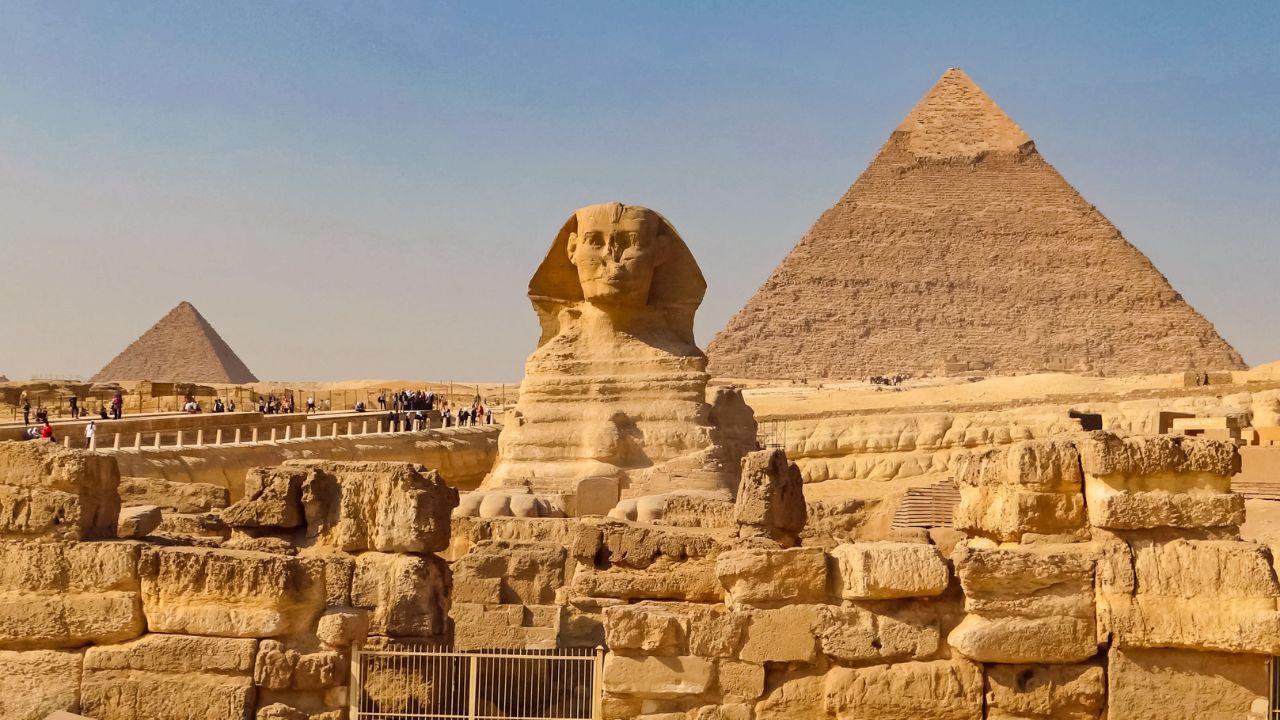
Post by: Vansh Kumar
Throughout history, civilizations have risen and fallen, often due to factors beyond their control. Among these, climate change has played a surprisingly pivotal role. While today we associate climate change with modern industrial activities, ancient empires also grappled with shifts in climate that significantly impacted their survival. From severe droughts to prolonged floods, these environmental changes shaped the destiny of powerful civilizations in fascinating ways.
In this article, we’ll explore how climate change shaped ancient empires, offering insights into how environmental factors influenced human history and the valuable lessons we can learn from their experiences.
For ancient civilizations, nature was both a provider and a formidable force. Empires thrived when they harnessed natural resources effectively, but they also faced collapse when the environment turned against them. Without the modern tools and technologies we have today, these societies were especially vulnerable to climate change.
The Maya civilization, known for its advanced architecture and writing, flourished in Mesoamerica for centuries. However, their empire began to decline around the 9th century CE. Archaeological evidence suggests that a series of severe droughts, likely caused by climate change, played a major role in their downfall. Without sufficient rainfall, agriculture suffered, leading to food shortages and social unrest.
Similarly, the Akkadian Empire, one of the world’s first great civilizations in Mesopotamia, collapsed around 2200 BCE. Scientists have linked this event to a prolonged drought that devastated crops and water supplies. As agriculture failed, the empire’s economy and social structure unraveled, showing how climate change shaped ancient empires by forcing them into crisis.
The Khmer Empire, famous for building the iconic Angkor Wat, also faced significant challenges due to erratic monsoon patterns. Studies reveal that periods of intense flooding followed by severe drought weakened their infrastructure and agricultural systems, contributing to the empire’s decline. This demonstrates how unpredictable climate patterns could destabilize even the most advanced societies.
While many ancient empires succumbed to the pressures of climate change, others demonstrated remarkable resilience. Their strategies offer valuable lessons for addressing today’s environmental challenges.
The Ancient Egyptians depended on the Nile River’s predictable flooding to sustain their agriculture. When floods became less reliable due to changing climatic conditions, they adapted by developing sophisticated irrigation systems. This innovation allowed them to maintain food production even during challenging times.
In South America, the Inca Empire faced the harsh climate of the Andes Mountains. To overcome this, they built terraces to prevent soil erosion and improve water retention. These adaptations helped them create a sustainable agricultural system that supported their population despite environmental challenges.
The stories of how climate change shaped ancient empires hold crucial lessons for modern societies. Ancient civilizations that adapted to changing climates were more likely to survive. Today, investing in sustainable technologies and practices can help us mitigate the impacts of climate change. From irrigation systems to terraced farming, ancient societies developed creative solutions to environmental problems. Modern science and innovation can continue this tradition.
Moreover, over-reliance on natural resources without planning for variability often led to disaster, as seen in many ancient empires. Sustainable resource management is essential for long-term survival. Additionally, the decline of many ancient civilizations was marked by internal conflict during times of environmental stress. Cooperation and shared responsibility are vital in addressing global climate challenges today.
The impact of climate change on ancient empires serves as a reminder that humanity’s relationship with nature is deeply interconnected. While we’ve made incredible technological advancements, we are not immune to the consequences of environmental shifts. Rising sea levels, extreme weather events, and shifting ecosystems pose challenges similar to those faced by ancient societies.
The key difference is that we now have the knowledge and tools to address these challenges proactively. By learning from history, we can build a more sustainable future and ensure that our modern “empires” do not meet the same fate as those of the past.
This article explores how climate change shaped the rise and fall of ancient civilizations, offering valuable lessons for modern societies. From the Maya and Akkadian empires to the Khmer and Inca civilizations, history demonstrates how environmental shifts such as droughts, floods, and erratic weather patterns profoundly influenced human history. Some societies adapted creatively with innovations like irrigation systems and terraced farming, showcasing resilience in the face of climate challenges. These historical accounts underline the importance of sustainable resource management, cooperation, and proactive measures in addressing today’s climate crisis. By learning from the past, we can better prepare for a sustainable and resilient future.
This article is brought to you by the DXB News Network to provide informative insights into the historical impact of climate change. The views expressed are for educational purposes and do not necessarily reflect the opinions of the DXB News Network. Readers are encouraged to explore additional resources and consult experts for a comprehensive understanding of climate-related topics.
#trending #latest #ClimateChange #AncientEmpires #HistoryLessons #EnvironmentalImpact #Civilizations #Sustainability #HistoricalInsights #EnvironmentalChallenges #AncientHistory #HumanHistory #breakingnews #worldnews #headlines #topstories #globalUpdate #dxbnewsnetwork #dxbnews #dxbdnn #dxbnewsnetworkdnn #bestnewschanneldubai #bestnewschannelUAE #bestnewschannelabudhabi #bestnewschannelajman #bestnewschannelofdubai #popularnewschanneldubai

Ananya Panday stuns in a vintage cyan saree with gajra at the Kesari 2 trailer launch. Her fresh summer look is a perfect festive style inspiration....Read More.

Dubai Police managed 45,845 calls over Eid, including 40,715 emergencies via 999 and 5,130 non-urgent queries via 901, ensuring quick response times....Read More.














Safeer Mall in Sharjah Closes After Decades as a Beloved Shopping Spot
Iconic Safeer Mall in Sharjah shuts down after nearly two decades, leaving residents nostalgic for i

Barcelona Beat Atletico to Set Up Copa Final vs Real Madrid
Barcelona edged Atletico 1-0 to reach the Copa del Rey final, where they’ll face rivals Real Madrid

UAE Wins 16 Medals at Special Olympics World Winter Games 2025
UAE athletes shine at Special Olympics Winter Games 2025, winning 16 medals. A proud moment for incl

Meta’s AI Research Head Joelle Pineau to Step Down in May
Joelle Pineau, Meta’s VP for AI research, will step down in May after 8 years. She led Meta’s open-s

Real Madrid Edge Real Sociedad in 4-4 Thriller to Reach Final
Real Madrid fought back from 4-2 down to draw 4-4 with Real Sociedad sealing a 5-4 aggregate win. Ru